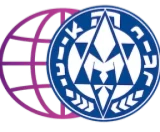By: Salo Cassab
Nowadays, it is impossible to explain social phenomena without relying on interdisciplinary studies. Psychology, anthropology and even psychiatry help explain how social aspirations are being formed in the field of politics. In order to understand politics better, we need to first understand the complexity of the raw material it is made of—the human being.
In psychology, the concept of frustration is defined as the emotional state that a person experiences when desires are not available or attainable. Faced with this type of situation, a person usually reacts emotionally, primarily with expressions of anger, anxiety or dysphoria.
It may be stated that, with the exception of a small span of three years, the right wing has ruled Israel for forty consecutive years. During this time, the political map has shifted toward the right. There are those who voted for Rabin in the nineties who no longer identify him with the idea of peace or the Palestinian State. The failure of the Oslo Accords as a peace process, the Second Intifada, the attacks of Hezbollah after Israel’s withdrawal from Lebanon and those of Hamas after Israel’s disengagement from Gaza are some of the elements that generated distrust in the left-wing parties. The left has tried for years to regain the confidence of the people and bring out new economic, social, and
security proposals. Faced with failure, the Israeli left wing generated a clear sense of frustration, which generally keeps moving it farther away from its objective.
The Israeli left has long stopped proposing alternatives. The opposition turned them into incessant complainers without bringing any new ideas of their own to the table. On the few occasions that they brought proposals, they were based on returning to old concepts.
According to Carl Schmitt, political grouping is managed within the concept of “friendenemy”, which express the need for distinction, carries a sense of affirmation of oneself—(we) against others (them)—as well as awareness of equality and otherness.
Frustration has led a part of the left to lose the path of Zionist and Jewish identity. Their anger toward the right has thrown them to the extreme, and in many cases, they choose to demand to change the current administration in general and Netanyahu in particular at
any cost. Racist and pejorative expressions, the lack of patriotism, and the identification or grouping with anti-Zionist entities, are at the core of discussion during political contests. See the case of Amir Hetzroni or Meir Garbuz in 2015. Another example is Mossi Raz, chaver Knesset (Meretz) who said: “Israel does not necessarily have to be a Jewish
country, and Meretz is not necessarily a Zionist political party.”
Schmitt also explains that the “enemy” is not any opponent; it is more that the enemy is an opponent if he or she is part of the “we” as a society.
Today, one of the most talked about topics in the political battle between Netanyahu and Benny Gantz is whether “Kahol Lavan” would be willing to form a coalition with the Arab parties. Obviously, the problem does not lie within the simple fact of them being Arabs, but with the fact that their members have repeatedly spoken out in favor of Hamas, legitimizing terrorism and calling for the termination of Israel as a Jewish state. The difficulty that Gantz faces is not of obtaining more seats than Netanyahu (which is possible, although it is not a fact), but rather forming a coalition with which the voters of Kahol Lavan feel comfortable and identify. The dilemma, perhaps, will be between
bringing down Netanyahu at any cost or maintaining the Jewish and Zionist character, but with one term or more of a Likud government.
The frustration that arises from such a dilemma may lead the left to anger of a selfdestructive nature, as in the psychology of an individual. Forming a government with the Arab parties would not only be betraying part of the electorate but would also generate a
relationship of distrust between the Israeli citizen and the left-wing (and centrist) parties once again.
The search for a solution leads us down the path where every problem is the unknown that must be made clear through dialogue and discussion, building from the ground up and reviewing the ideological aspect that the left-wing parties have to offer to the Israeli society, in search of a better country. In order to do so, we must be prepared to accept, without anger, the disagreements that are presented throughout this endless journey. In the end, we will always be faced with the challenge of incorporating into our political behaviors the spirit of tolerance, which is the material from which democracy is made. It
is true that many disagreements seem abysmal, and the Arab-Israeli conflict constantly widens this gap, but we must accept that a large part of the disagreements derive simply from the different perceptions of reality.










